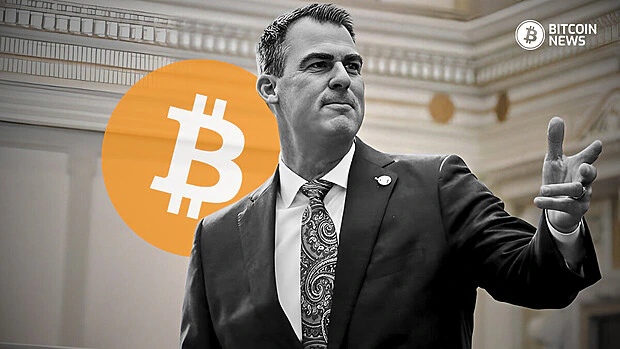In a landmark move, Governor Kevin Stitt of Oklahoma has officially signed the ‘Bitcoin Rights’ bill into law, granting Oklahomans the legal freedom to mine, transact, and self-custody bitcoin.
This sweeping legislation, known as HB3594, was spearheaded by Republican state Rep. Brian Hill and championed in the Senate by Republican state Sen. Bill Coleman. It draws inspiration from model policies advocated by the state-focused bitcoin mining advocacy group, Satoshi Action Fund.

The bill’s journey from proposal to law has been swift, having recently passed through both the Senate and House in Oklahoma on April 24.
Its rapid progression reflects the strong support for digital asset rights within the state, highlighting the state’s commitment to fostering innovation and economic growth.
The enactment of this bill is a significant victory for bitcoin enthusiasts, particularly at a time when federal regulation in the United States remains uncertain.
The news of this passage comes amidst the community’s concern over potential federal restrictions on self-custody of bitcoin, prompted by recent crackdowns on digital asset mixing services and privacy tools.
While the fear of a federal ban on self-custody looms, Oklahoma’s ‘Bitcoin Rights’ bill proactively safeguards the right to self-custody bitcoin, whether in self-hosted or hardware wallets.
Moreover, it ensures that using bitcoin to purchase legal goods and services does not incur any extra taxes solely based on digital asset payments.
Furthermore, the bill legalizes bitcoin mining activities for residents, both at home and on an industrial scale, with the condition of compliance with local noise ordinances.
Oklahoma’s potential for a digital asset mining hub has been underscored by the recent announcement by Polaris Technologies to invest $100 million in a 200 megawatt mining facility outside of Tulsa.
By protecting the right to mine bitcoin in Oklahoma, the bill prevents potential bans on bitcoin mining, similar to those observed in states like New York and North Carolina.
The legislation, set to take effect on November 1, 2024, also ensures that miners and node operators are not required to obtain money transmitter licenses, reducing regulatory burdens and promoting innovation.
Dennis Porter, CEO and co-founder of Satoshi Action Fund, hailed the enactment of the bill as a historic moment for bitcoin rights. He emphasized the importance of self-custody in preserving financial autonomy by stating:
“The idea that ‘We the People’ cannot hold our own assets is antithetical to American values […] This law ensures that everyone can secure not only their Bitcoin but all their assets.”
The ‘Bitcoin Rights’ bill turning into law in Oklahoma not only sets a national precedent for digital asset regulation but also serves as a beacon of hope for bitcoin enthusiasts in other bitcoin-friendly countries.










